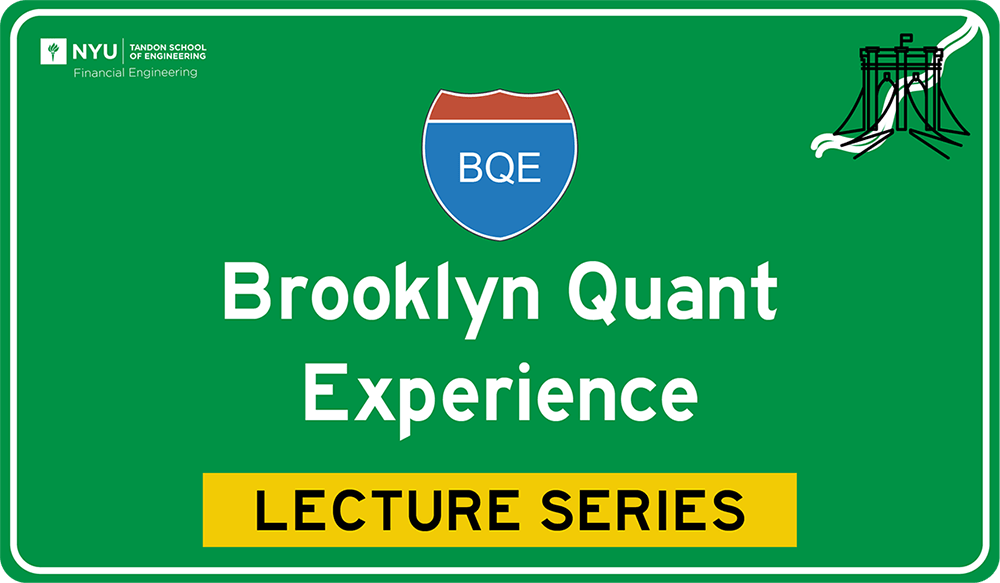
Join us for the Brooklyn Quant Experience (BQE) Lecture Series today, Thursday, March 31st at 6 pm ET on Zoom.
“When to Sell an Asset? – A Distribution Builder Approach”
(This is joint work with Peter Carr.)
Stephan Sturm
Associate Professor
Mathematical Sciences
Worcester Polytechnic Institute

*Please note a meeting password is required for this event.
Meeting ID: 947 7419 9649
Password: BQESS331
Abstract
We revisit the question of the optimal time of an asset sale from the point of view of Sharpe’s “Distribution Builder” approach: Instead of assuming the investor’s risk preferences in form of a utility function, the investor provides themself a distribution that should be attained when selling the asset at a stopping time (specified a priori). This obviously begs the question of which distributions are attainable for an investor. We connect this problem to the Skorokhod embedding problem for one-dimensional diffusions and provide explicit representation for optimal stopping times as well as their expected values. In the case that the target distribution is specified from a parametrized family (e.g., log-normal distributions), we show that optimality involves a mean-variance trade-off similar to the efficient frontier in Markowitz’s approach to portfolio optimization. This is joint work with Peter Carr.
Bio
Stephan Sturm is an Associate Professor of Mathematical Sciences at Worcester Polytechnic Institute (WPI) in Massachusetts. After obtaining his Ph.D. in Mathematics from TU Berlin (Germany), he became a Postdoctoral Research Associate and Lecturer at ORFE before joining WPI as a faculty member. Sturm’s research covers mainly different areas of financial mathematics, but he is interested in stochastic modeling in general, such as applications to climate science. In finance, his work is devoted in particular to questions of value adjustments for derivative securities (XVAs), optimal portfolio selection, and systemic risk in financial markets.


